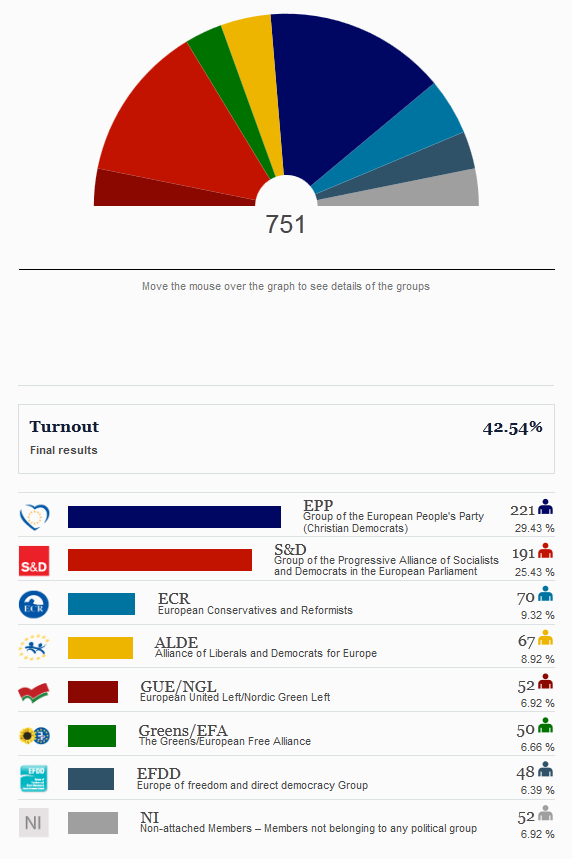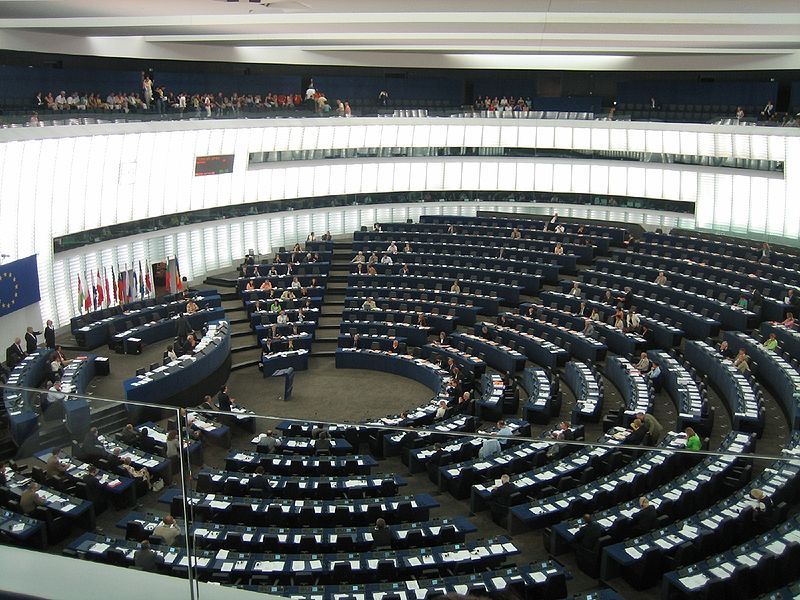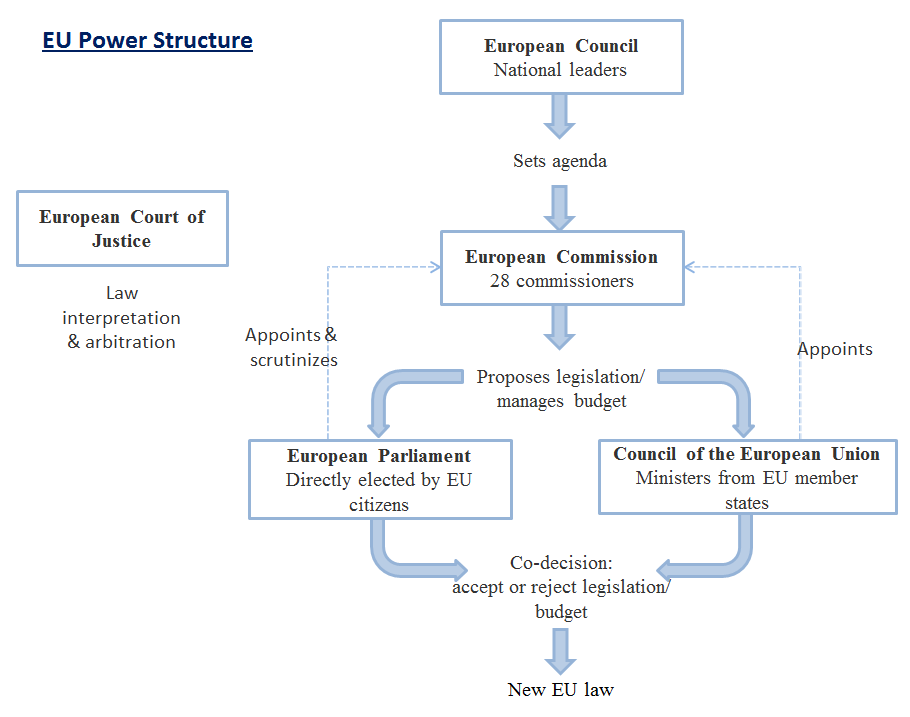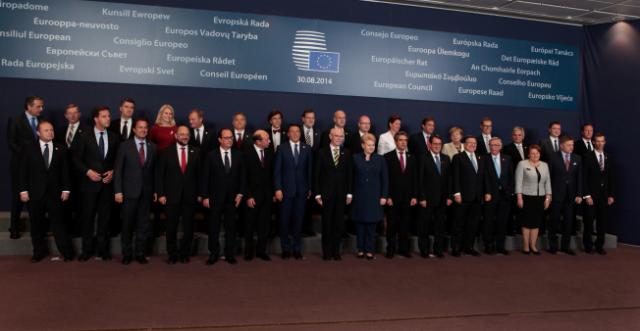Introduction
The European Union (EU) is a large politico-economic organization. Despite its complexity, it does play an important role in the everyday life of Europeans as well as in international relations. It is therefore essential to have some understanding of EU’s power structure. To put it simple, what you have to know is basically the following five most important EU institutions:
- European Council
- European Commission
- European Parliament
- Council of Ministers/ Council of the European Union
- European Court of Justice
So how do they function and what do they do?
European Council
The EU has 28 member states. Each head of state has certain authority over the course of EU development. The European Council is the summit where these European leaders meet to make decision. Normally, four such summits are held each year, but sometimes there will be special meetings. The main duties of the European Council are as follows:
- To set the course of EU development
- To decide policy priorities
- To reach a consensus of sensitive issues (e.g. sanctions against any party) that can hardly be resolved at a lower level of intergovernmental cooperation
European Commission
The European Commission is the only body that has the right to initiate new EU legislation. Composed of 28 commissioners, it offers the following positions:
- President
- High Representative of the Union for Foreign Affairs and Security Policy
- Commissioner for Competition
- Commissioner for Transport
- Commissioner for Digital Agenda
- Commissioner for Inter-Institutional Relations and Administration
- Commissioner for Internal Market and Services
- Commissioner for Energy
- Commissioner for Economic and Monetary Affairs and the Euro
- Commissioner for Environment
- Commissioner for Development
- Commissioner for Education, Culture, Multilingualism and Youth
- Commissioner for Taxation, Customs, Statistics, Audit and Anti-Fraud
- Commissioner for Trade
- Commissioner for Research, Innovation and Science
- Commissioner for Maritime Affairs and Fisheries
- Commissioner for International Cooperation, Humanitarian Aid and Crisis Response
- Commissioner for Regional Policy
- Commissioner for Climate Action
- Commissioner for Enlargement and European Neighbourhood Policy
- Commissioner for Employment, Social Affairs and Inclusion
- Commissioner for Home Affairs
- Commissioner for Agriculture and Rural Development
- Commissioner for Health
- Commissioner for Consumer policy
- Commissioner for Industry and Entrepreneurship
- Commissioner for Justice, Fundamental Rights and Citizenship
- Commissioner for Financial Programming and Budget
Candidates of the European Commission are proposed by the heads of EU member states (i.e. the German chancellor, the French president, the British prime minister, etc.) with reference to the European Parliament, but once they are in office, they are obliged to abandon their national interests and work instead on behalf of the European Union. The duties of the European Commission include:
- To propose new legislation
- To manage the EU’s budget and allocate funding
- To ensure EU member states adhere to EU regulations (otherwise, the Commission can take them to the European Court of Justice)
- As representative of the EU to attend international summits, e.g. UN Climate Change Conference
European Parliament
The European Parliament is the only directly-elected EU body with election held every five years. The latest term (2014-2019) sees 751 politicians from 28 EU countries elected as members of the European Parliament (MEPs). The number of MEPs’ seats to be distributed to each EU country depends roughly on the size of population. The main duties of the European Parliament include:
- To debate and pass or reject legislation and budget proposed by the European Commission (together with the Council of Ministers)
- To scrutinize the European Commission; if necessary, the European Parliament has the right to dismiss the Commission in a vote of no-confidence (a two-thirds majority is required)

The result of the latest EP election (2014-2019). Seats in the EP are grouped together according to party, but not to nationality. Source: European Union
Council of Ministers (or Council of the European Union)
The Council of Ministers, as the name itself suggests, consists of government ministers of EU member states. For example, when the topic discussed is about farming, ministers of agriculture of EU member states will attend. The Council of Ministers is responsible for:
- Debating and passing or rejecting legislation and budget proposed by the European Commission (together with the European Parliament)
European Court of Justice
The European Court of Justice enjoys judicial independence. Its main duties include:
- To arbitrate dispute of EU-related issues between different parties (e.g. European Commission, EU member states and companies)
- To clarify EU law
A classic example is the European Union Microsoft case, in which the European Commission took Microsoft to the European Court of Justice. Microsoft was accused of monopoly and thereby breaching the competition law. It lost the legal battle in the end and was heavily fined.
Summary
Read more



